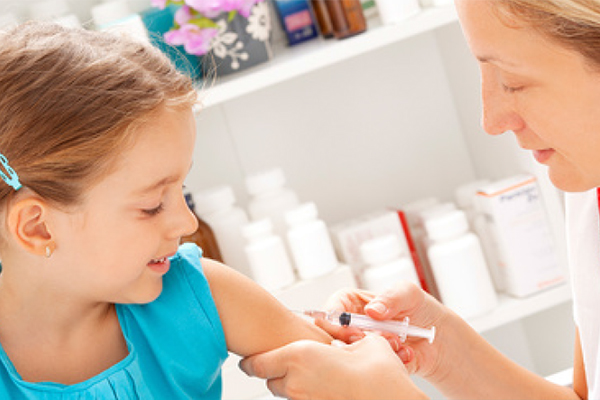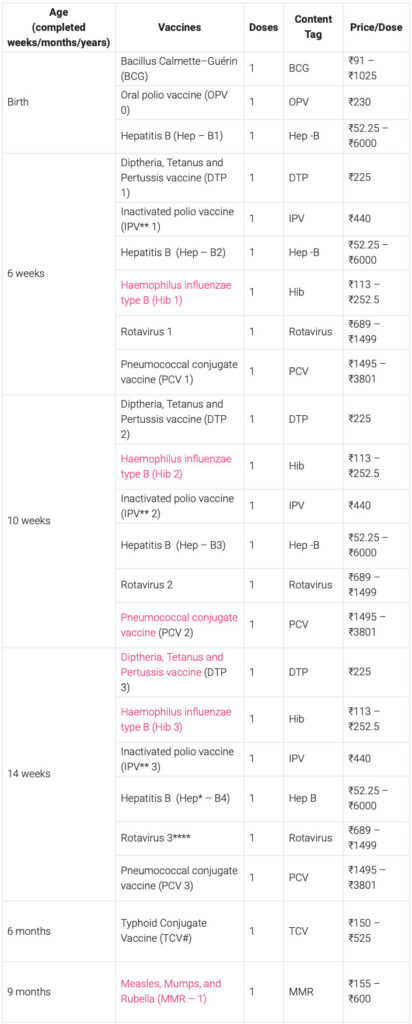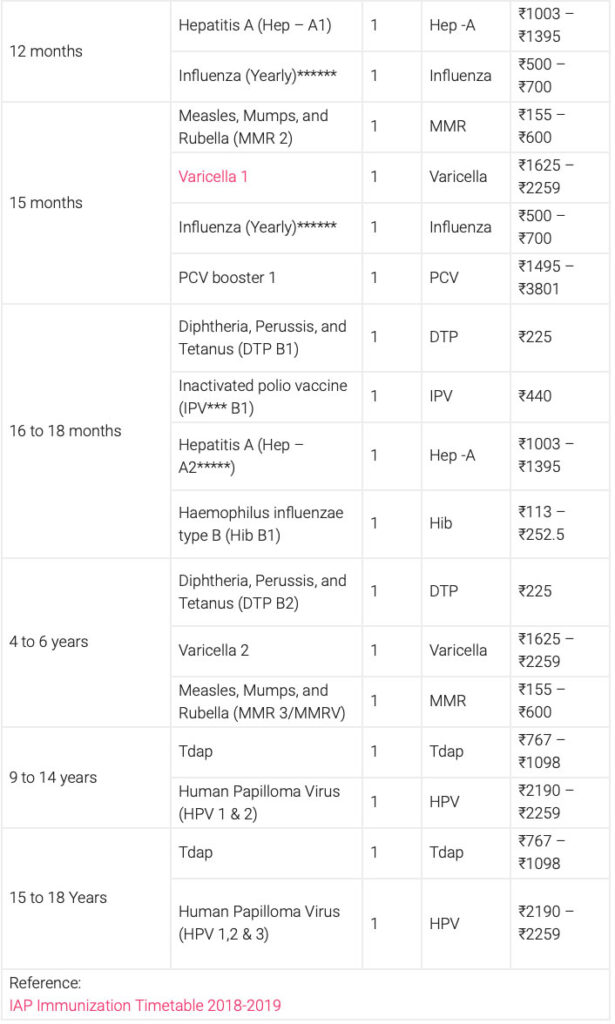-
0240 239 0466
Please feel free to contact our friendly reception staff with any general or medical enquiry.
Make Appointment
Child Immunisation
Child Immunisation
Prevention is Cheaper than Cure
It’s difficult to see your little darling get a vaccination shot, but experts agree that vaccination is vital to prevent children from dangerous illnesses. Thanks to vaccines, your child’s less likely to catch a serious illness like whooping cough, measles, mumps, Hib meningitis,meningococcal disease, pneumococcal disease, hepatitis, or polio. Learn about the recommended vaccination by country for your baby, and which shots to expect at your child’s next medical checkup. Role of Vaccination in Children who are highly susceptible to catching infections and diseases, especially in their early years.
This is because their immune system – which is the body’s defence system against infection-causing microorganisms (pathogens) – is not fully developed yet.The role of the immune system is to protect the body by battling against pathogens.However, some pathogens can overwhelm the immune system, and when this happens, the child falls sick. It is usually the pathogens that cannot be recognized by the body that lead to problems.When children get their vaccine shots, it helps the immune system to recognize which organism is harmful and how to eliminate it. This way the body is prepared to fight pathogens when they attack, and your child is immunized from illnesses.
Top 8 Reasons to Protect Children Through Vaccination As parents, we want to do everything possible to keep our children healthy and safe from preventable diseases. Vaccination is the best way to guarantee this.Vaccination is totally safe and effective. All vaccines undergo long and detailed review by scientists, doctors, and the government to make sure they are safe .Pediatric organizations such as Indian Academy of Pediatrics (IAP) and the Centers for Disease Control and Prevention strongly support protecting children with recommended vaccinations. Vaccination protects children from serious illness and complications. In the absence of vaccination, these diseases can lead to conditions such as paralysis of limbs, hearing loss, convulsions, amputation of an arm or leg, brain damage, or even death. Diseases like measles, mumps, and whooping cough are vaccine-preventable but still a threat globally. Many children get infected by them every year. Though vaccination has led to a sharp decline in the incidence of many infectious diseases, some of them are still quite common in other countries. They may be brought to your country by international travelers. If children are not vaccinated, they could get infected by one of these diseases from travelers or while traveling themselves. If many parents decide not to vaccinate their children, it might trigger an outbreak of preventable diseases. Such an epidemic can turn out to be disastrous for child health care. If children aren’t vaccinated, they can spread diseases to other young children, and there will not be herd immunity in babies who are too small to be vaccinated, or to people with weak immunity, such as cancer patients.

* Fourth Dose of Hepatitis B permissible for combinations vaccine only
** In case IPV is not available or feasible, the child should be offered bOPV (3 doses). In such case give two fractional doses of IPV at 6 wk and 14 wk
*** b-OPV, if IPV booster (standalone or combination) not feasible
**** Third dose not required for RV 1. Catch up to 1 year of age in UIP schedule.
***** Live attenuated Hepatitis A vaccine: Single done only
****** Begin influenza vaccine after 6 months of age, about 2-4 weeks before season, give 2 doses at the interval of 4 weeks during first year and then single dose yearly till 5 years of age
#TCV = Typhoid conjugate vaccine,
##HPV = Human Papillomavirus Note:
Vaccination prices shown in the table are for reference only and may vary asper your location.
Please consult your pediatrician or visit any professional medical store before making any purchase.
People’s Negligence Toward Vaccination
Vaccines are a safe way to prevent people from deadly diseases. However, in recentyears, some opponents of vaccination have challenged their safety and effectiveness.There are even some research findings making the rounds that link vaccines toautism. However, there isn’t any valid proof for this proposition. On the contrary,there is proof that vaccines have saved people from dying.People sometimes avoidvaccinating their children due to such ‘reports’. Some of us are even unaware of thefact that children need to be vaccinated against a specific disease, for instance,seasonal flu. In order to keep our children protected, it is necessary to talk to doctorsabout the vaccines your child needs as per age.
Things to Remember During Vaccination
Try to adhere to your child’s vaccination schedule and never miss a vaccine. If you domiss a vaccine, approach your paediatrician to discuss if it can be given at a latertime.In case your child has fever, inform your doctor before immunization. Yourdoctor may need to reschedule.Sometimes, the doctor may give you the option ofpainful or painless vaccines. As parents, we want to avoid causing any pain to ourchild. However, please discuss the difference between painful and painless vaccinesto make an informed decision. As per studies, the painless vaccine may have a fasterperiod of waning (i.e. the immunity decreases faster) than the painful vaccine.Forsome vaccines, it’s normal to get fever for a few days after it is administered. You canuse a sponge bath to reduce your baby’s temperature.
Visit your doctor in case fever persists beyond 1-2 days.Take along a family memberor your spouse, if possible, to assist you during your child’s vaccination. This will helpdistract and comfort the child during and after the shot is given. Carry your child’sfavourite toy, blanket, etc. to comfort them.
Vaccine Preventable Diseases
Vaccination against a range of bacterial and viral diseases is an integral part of communicable disease control world-wide. Vaccination against a specific disease not only reduces the incidence of that disease, it reduces the social and economic burden of the disease on communities. Very high immunisation coverage can lead to complete blocking of transmission for many vaccine preventable diseases (VPDs). The world-wide eradication of smallpox and the near eradication of polio from many countries provide excellent examples of the role of immunisation in disease control. Early immunisation of infants and completion of the full schedule of vaccinations up to and through adulthood contributes to reducing the incidence and burden of vaccine preventable
diseases. People who have not received the full schedule of vaccines or who are unsure of their vaccination status should contact their local GP or health centre for “catch up” vaccination. Exclusion periods are intended to reduce the rate of transmission of infectious diseases in establishments such as day care centres, creches and schools, by restricting contact with infected individuals.
Vaccine preventable diseases currently include:
Diseases for which vaccinations form part of the National Vaccination Schedule
- Diphtheria – DTP, tdap vaccine, DPT vaccine, DTwP
- Tetanus- tetanus shot
- pertussis (whooping cough)- DTP, tdap vaccine, DPT vaccine, DTwP, whooping cough vaccine.
- poliomyelitis (polio)- OPV polio vaacine, IPV vaccine.
- Measles- Measles Vaccine
- Mumps- MMR Vaccine.
- Rubella- Rubeela Vaccine, MMR
- haemophilus influenzae type b infections- HIB, HIB vaccine, Pentavalent vaccine, Hexavalent Vaccine (Painless Vaccination)
- hepatitis B- HB vaccine
- influenza – Flu vaccine,
- pneumococcal infections – Prevenar 13, Pneumovax 23, PCV Vaccine
Other diseases where a risk may arise for a particular person or group of people in specific situations:
- cholera – cholera vaccine
- hepatitis A – Hepatitis A Vaccine,
- meningococcal disease- Meningitis vaccine, Meningococcal Vaccine
- plague
- rabies -Rabies vaccine
- bat lyssavirus
- yellow fever
- Japanese encephalitis -Japanese encephalitis vaccine,
- Q fever
- tuberculosis – tuberculosis vaccine ( BCG )
- typhoid – Typhoid vaccine
- varicella-zoster (chickenpox) – Chickenpox vaccine or varicella vaccine


